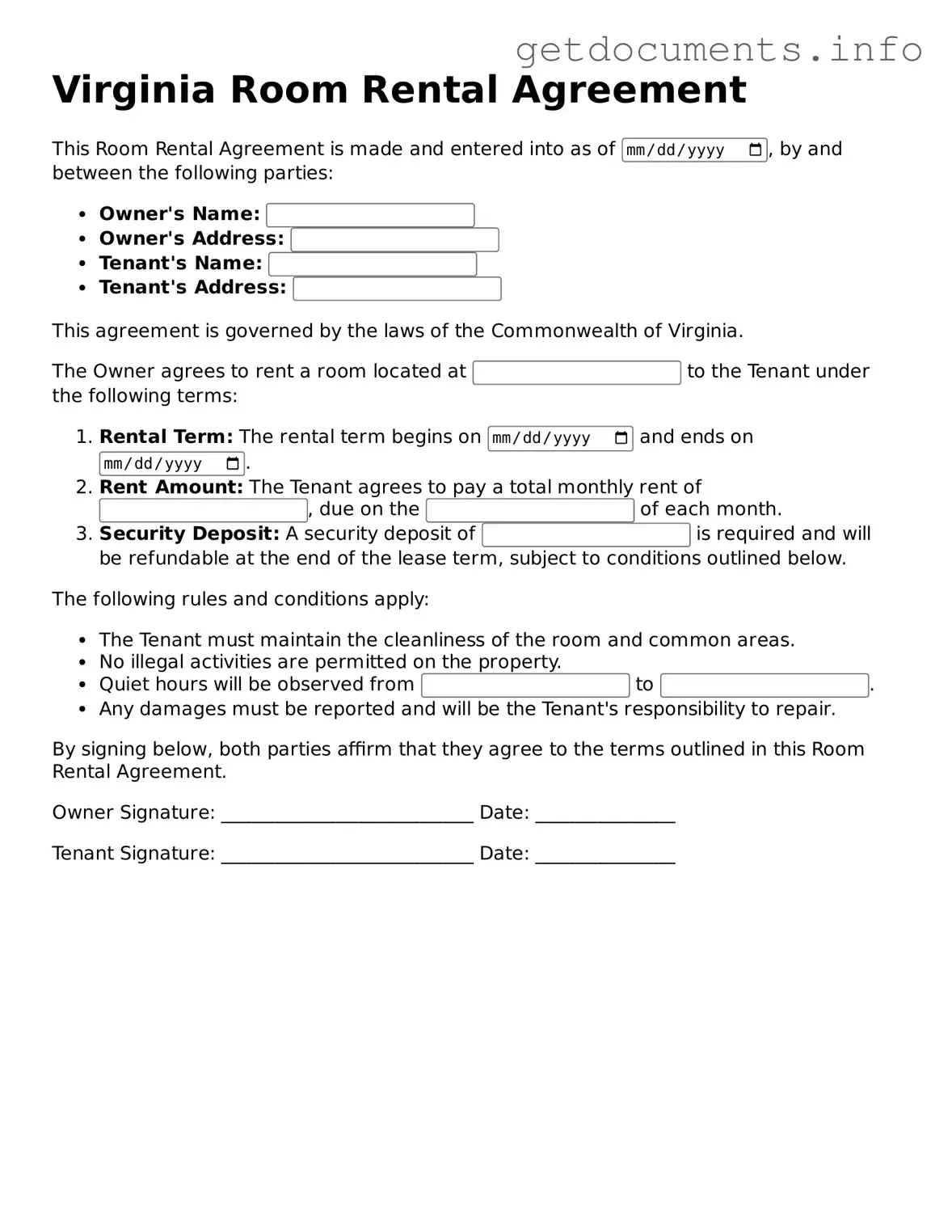Free Room Rental Agreement Template for Virginia
The Virginia Room Rental Agreement is a legal document that outlines the terms and conditions between a landlord and a tenant for renting a room. This agreement serves to protect the rights of both parties while ensuring a clear understanding of responsibilities. For a smooth rental experience, consider filling out the form by clicking the button below.
Access Room Rental Agreement Editor

Free Room Rental Agreement Template for Virginia
Access Room Rental Agreement Editor
Got places to be? Complete the form fast
Fill out Room Rental Agreement online and avoid printing or scanning.
Access Room Rental Agreement Editor
or
⇩ PDF File
